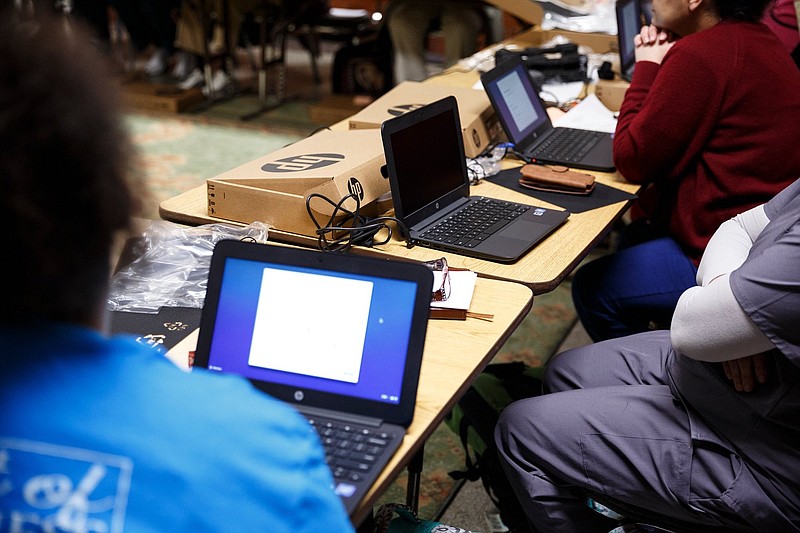Having spent more than 30 years as an educator and principal, I love to spend time with children and adolescents. They tend to be curious, silly, energetic and clever. Like most adults, students enjoy new and innovative ways of learning. Lecturing was the teaching norm when I was a child, but the options today are far more engaging. That's why, while principal of a large middle school in Boston, we implemented a 1:1 laptop program - loaning every student a laptop. We were one of the first urban middle schools in the country to do so. Watching students master new technologies so they could become not just consumers, but creators of content, was inspiring.
Unfortunately, not every student has access to these tools at home, and it's taking a toll on our community's well-being and future. Lack of access to high-speed broadband is a significant hindrance to learning during normal times but is a far greater concern when we expect children to attend classes from home. When Hamilton County Schools transitioned to online learning this spring, the district estimated up to a quarter of its students did not have home internet, which is on par with estimates of the national average. Having high-speed access, a functional computer and the requisite tech skills are imperative if we expect equitable learning outcomes. The issue is equally problematic for the worker who cannot work at home because her only device is a phone or the faith leader who cannot reach his congregation because he does not have the tech skills required to do so.
There are several reasons for lack of home access. The greatest, by far, is cost. While there are some lower-cost options available for those who qualify, we need to ensure those who are eligible are aware of the opportunity, and we need to make the process to sign up for the service easier to manage. To further complicate matters, there are those who live in rural or underserved areas where adequate access is simply not available. In our local utility EPB's footprint, we are lucky to have ubiquitously available gig access, but there are places just over that line where the only options for service are dial-up, slow DSL or satellite. Even if residents could afford higher speed internet, it is impossible to obtain.
Thankfully, we know there are solutions that work. Local communities across the country have been implementing programs that can change the narrative. In Chattanooga and Hamilton County, for example, we have a great program called Tech Goes Home that provides devices, help to find low-cost home access, and digital skills training to those who need the assistance. We have supported 4,600 folks through the program, but we still have a lot of work to do. After years of research and hard work by local governments, anchor institutions, and nonprofits across the country, we have made progress, yet the digital divide persists.
What's next? We need an uprising of local voices who demand additional federal and state interventions to ensure everyone has access to this vital utility. We should empower more local solutions. The FCC should allow e-rate funding to be used to provide home access for students. And federal stimulus dollars should be directed to help us connect those most vulnerable to the impact of a pandemic. Investing in access for all is the right thing to do, and it will create a better future for everyone in our community.
Deb Socia is the president of The Enterprise Center, a nonprofit economic development partner to the city of Chattanooga and Hamilton County. Tech Goes Home is a program of The Enterprise Center.
